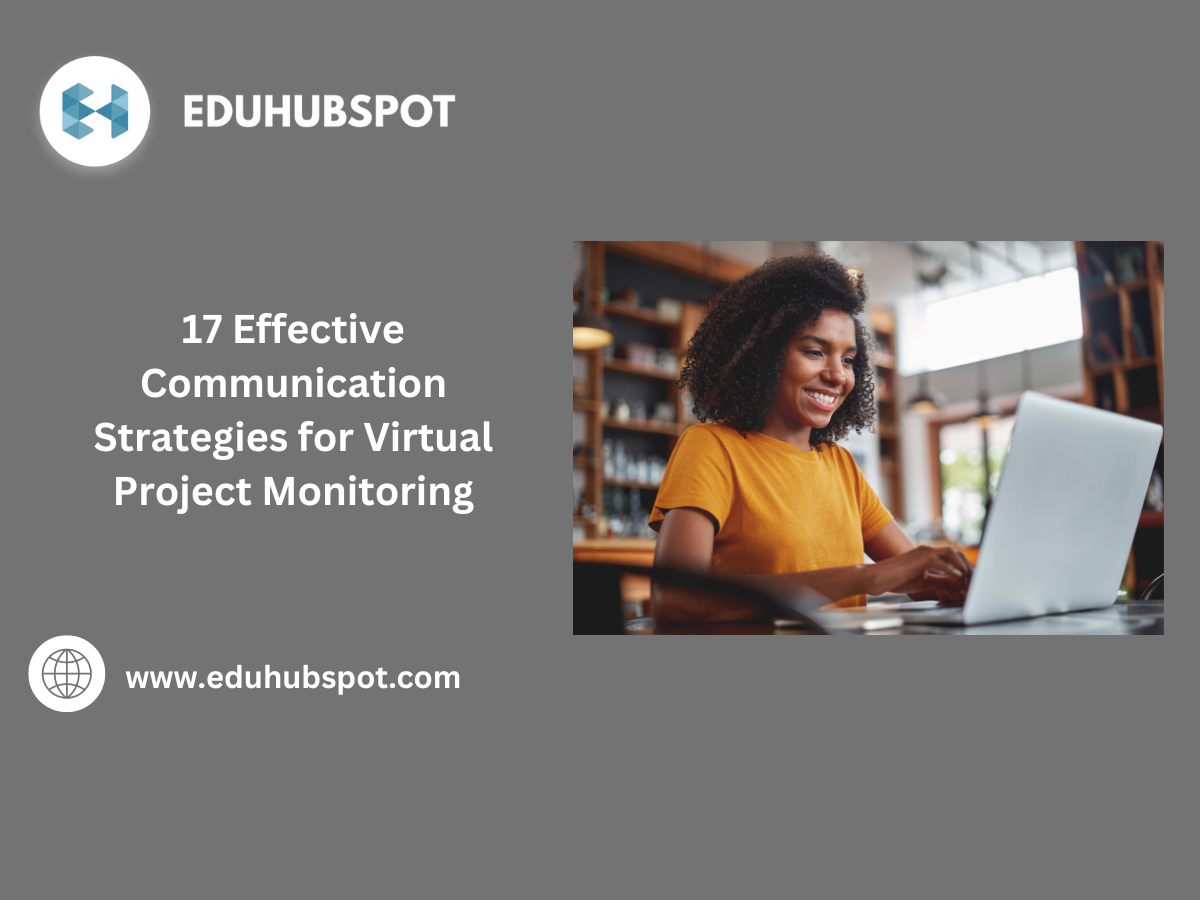Introduction
In the ever-evolving landscape of project management, where virtual teams collaborate across geographical boundaries, effective communication emerges as the cornerstone of successful project monitoring. As project managers navigate the complexities of dispersed teams, the ability to maintain clear, consistent, and proactive communication becomes paramount in ensuring that projects remain on track and objectives are met.
In this era of virtual collaboration, where physical presence is replaced by digital interactions, establishing a robust communication framework is essential for keeping virtual teams aligned, informed, and engaged throughout the project lifecycle. By implementing effective communication strategies, project managers can overcome the inherent challenges of remote work environments and foster a cohesive team dynamic that drives project success.
To effectively monitor virtual projects, project managers must skillfully utilize a variety of communication tools and techniques, transforming virtual project monitoring from a daunting challenge into a seamless process that ensures project success.
Here have effective communication strategies that can empower project managers to navigate the complexities of virtual project monitoring:
1. Establish Clear Communication Channels:
Define the primary communication channels for your project, such as email, instant messaging, or project management software. Ensure that everyone is aware of these channels and how to use them effectively. Clearly communicate the purpose of each channel to avoid confusion and ensure that team members use the most appropriate method for each type of communication.
2. Set Regular Communication Schedules:
Schedule regular virtual meetings or check-ins to keep everyone informed of project progress. Use these meetings to discuss milestones, address challenges, and make decisions. Establish a consistent meeting schedule and agenda to ensure that team members are prepared and that discussions remain focused and productive.
3. Leverage Project Management Tools:
Utilize project management software to track tasks, share documents, and facilitate collaboration. Ensure that all team members have access and understand how to use the chosen platform. Provide training and support to team members who may be unfamiliar with the project management tool to ensure that everyone can effectively utilize its features.
4. Encourage Proactive Communication:
Encourage team members to proactively communicate any issues, concerns, or updates. Foster an open and transparent communication culture where team members feel comfortable sharing information without fear of judgment or reprisal. Create a safe space for open communication by actively soliciting feedback, addressing concerns promptly, and recognizing team members for their contributions.
5. Emphasize Clear and Concise Communication:
Promote clear and concise communication in all written and verbal interactions. Avoid jargon and technical terms that may not be understood by everyone. Use plain language, avoid ambiguity, and structure messages in a logical and easy-to-follow manner. Encourage team members to proofread their written communications before sending them to ensure clarity and professionalism.
6. Utilize Visual Communication Aids:
Incorporate visual aids, such as charts, graphs, and diagrams, to enhance understanding and convey complex information effectively. Visuals can help to break down complex concepts, highlight key data points, and make information more accessible to team members with different learning styles.
7. Promote Active Listening:
Practice active listening skills to ensure you fully understand the perspectives and concerns of team members. Engage in active listening by giving your full attention to the speaker, avoiding interruptions, and asking clarifying questions to ensure comprehension.
8. Provide Regular Feedback:
Offer regular feedback to team members on their performance and contributions. Encourage feedback from team members as well. Feedback should be specific, timely, and constructive, focusing on both strengths and areas for improvement.
9. Address Conflicts Proactively:
Address conflicts or disagreements promptly and professionally to prevent them from escalating and hindering project progress. Encourage open communication, active listening, and a willingness to compromise to resolve conflicts effectively.
10. Celebrate Successes:
Recognize and celebrate team achievements to boost morale and maintain motivation throughout the project. Celebrate milestones, acknowledge individual contributions, and express gratitude for the team’s efforts.
11. Utilize PMP Training and Certifications:
Encourage team members to pursue PMP training and certifications by a renowned ATP like EDUHUSPOT to enhance their project management knowledge and skills. PMP training can provide a comprehensive understanding of project management methodologies, communication techniques, and conflict resolution strategies.
12. Employ PMP Bootcamps for Intensive Learning:
Consider PMP bootcamps for intensive and focused project management training to quickly elevate team capabilities. PMP bootcamps offer a condensed and immersive learning experience that can equip team members with the skills and knowledge needed for effective virtual project monitoring.
13. Adapt Communication Styles to Individual Preferences:
Recognize that individuals have different communication preferences and adapt your approach accordingly to ensure effective interactions. Consider personality types, cultural backgrounds, and communication preferences to tailor your communication style for each team member.
4. Utilize Video Conferencing for Enhanced Engagement:
Leverage video conferencing tools to facilitate face-to-face interactions and enhance engagement among virtual team members. Video conferencing can help to build rapport, improve understanding, and create a more personal connection among team members.
15. Encourage Informal Communication Channels:
Promote informal communication channels, such as virtual watercooler chats or social media groups, to foster team bonding and camaraderie. Informal communication channels can help to build relationships, reduce isolation, and create a more cohesive team environment.
16. Schedule Virtual Team-Building Activities:
Organize virtual team-building activities to strengthen relationships, boost morale, and promote collaboration. Virtual team-building activities can be fun and engaging ways to break down barriers, encourage interaction, and build a stronger team spirit.
17. Continuously Evaluate and Improve Communication Strategies:
Regularly evaluate the effectiveness of your communication strategies and make adjustments as needed to optimize virtual project monitoring. Seek feedback from team members, identify areas for improvement, and implement changes to ensure that your communication strategies are meeting the needs of the team and the project.
Conclusion
In the dynamic realm of virtual project management, effective communication stands as the cornerstone of successful project monitoring. By implementing these strategies, project managers can overcome the inherent challenges of remote work environments, fostering a cohesive team dynamic that drives project success. As virtual teams become increasingly prevalent in today’s globalized business landscape, the ability to communicate effectively across distances and time zones becomes an essential skill for project managers. By embracing these strategies and fostering a culture of open, transparent, and proactive communication, project managers can effectively navigate the complexities of virtual project monitoring and lead their teams to achieve remarkable results.
Author: Axiswebart team has 6+ years of experience in writing content on Project Management topics and along with different publications. Also, they are delivering good write-ups on various other projects too.



